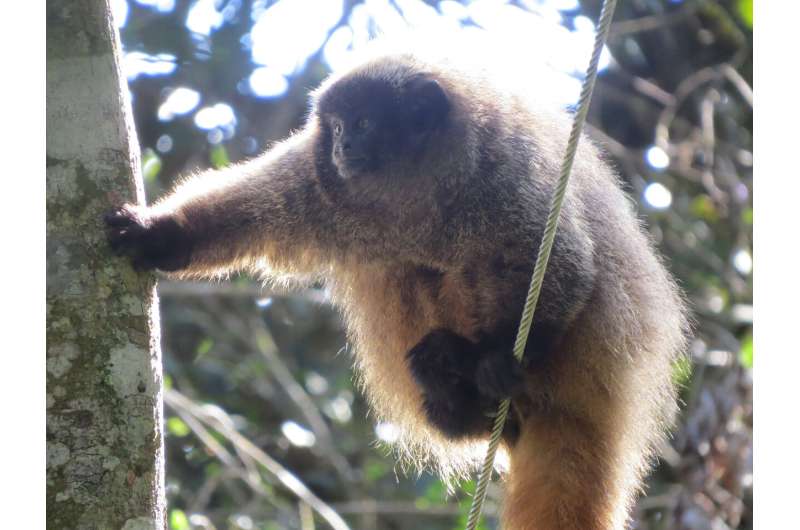May 16, 2019 report
Titi monkeys use probabilistic predator calls to alert others in their group

A team of researchers with the University of Neuchâtel in Switzerland and the University of St Andrews in the U.K., has found evidence of titi monkeys using probabilistic predator calls to alert others in their group to the presence of different kinds of danger. In their paper published in the journal Science Advances, the group describes their study of several groups of titi monkeys in the wild and what they found.
Titi monkeys are small, social monkeys native to South America. They survive mainly by eating fruit, but also consume other vegetation and even small animals occasionally. They also serve as food for a wide range of predators, which has led to the evolution of warning systems. In this new effort, the researchers focused on the black-fronted titi monkeys living in Brazil. Prior studies have shown that their warning system has evolved to the point that individuals can tell others if they have spotted a flying predator (by giving an A call) or a ground predator (by giving a B call). Interestingly, prior research has also shown that they can mix their calls if needed, for instance, if a raptor lands on the ground, or a terrestrial predator climbs into the trees. In this new effort, the researchers have found that the warning calls of the titi monkeys are even more complex than previously thought.
To learn more about the warning calls of the titi monkeys, the researchers ventured into their natural forest habitat and observed six families of them as they responded to decoy threats—stuffed predators the researchers placed in watchable locations. They not only recorded the calls the monkeys made, but also noted where they were looking when they made them and when the others listened to them.
The researchers found that warning messages were encoded with information based on the proportion of call types. They suggest this indicates that probabilistic meaning was involved in the calls, which allowed the monkeys to add more information for others who were listening. The researchers suggest their findings could lead to better understanding whether human speech evolved from similar types of communications.
More information: Mélissa Berthet et al. Titi monkeys combine alarm calls to create probabilistic meaning, Science Advances (2019).
Journal information: Science Advances
© 2019 Science X Network

















